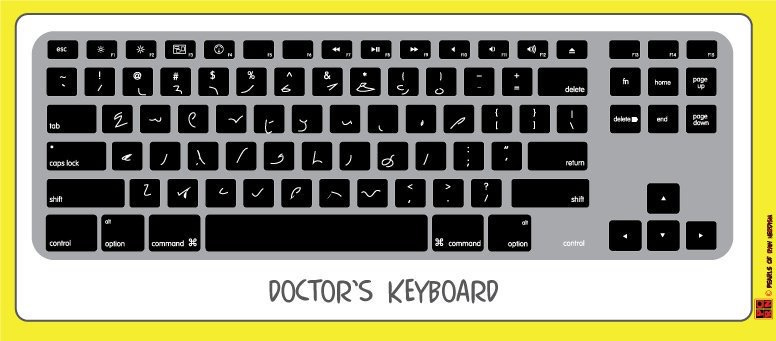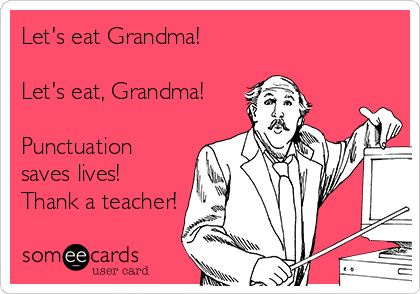He's not my type
I prefer nice dictators
My eternal thanks frequently go to Mrs. Bryant, my very patient typing teacher from 11th grade, who taught us how to work that behemoth IBM Selectric, which quite frankly was a tad scary at first. That carriage return seemed downright violent at times, didn’t it? Or was it just my exaggerated startle response? Doesn’t matter, it was easier on my wrists and fingers than my father’s Smith-Corona typewriter that I used for all my high school reports. To get any speed on that dinosaur, my fingers learned to navigate the slope of that keyboard with all the grace of an agile but heavy-footed mountain goat.
Today’s flat keyboards thankfully do not object to the muscle memory of my heavy fingers, and the poor space bar gets the most abuse.
If I was I was Anne Frank typing, they would have found me in short order, or thought they heard a shoot-out and made a run for their lives.
In undergraduate I worked on the university newspaper, for the first time typing on word processors. That was both fun and good for eating money. One of my other concurrent jobs working as a cashier in the dining hall necessitated that I learn the 10-key, or get mobbed by a line of hungry students, so that was a nice typing-adjacent skill, and I really don’t like that my laptop does not also have a 10-key. I was also assigned to type my undergraduate department newsletter, though I suspect only because I could type and the secretaries were just done with that drivel. They had tedious, lengthy manuscripts to type.
During the summers I typed for a home newspaper, which was also good for some decent spending cash, so while my friends were flipping burgers for minimum wage, I came to realize my typing skills were definitely paying off. Money for a poor student was one thing, but I had no idea how necessary those skills would become.
When I was in medical school, doctors scribbled notes that only very skilled nurses or very skilled pharmacists could mostly read, or more likely infer.1
For important notes, they would dictate them to be transcribed by the secretary in their office who knew them and could understand their rapid bursts between bites of a sandwich and also make it comprehensible to others. I’m quite sure they were never paid adequately for those skillsets.
As my post-graduate medical training progressed, transcriptionists became removed and unfamiliar to us, unfamiliar with our accents, regional dialect, and eccentricities, such that the result frequently needed to be sent back for editing, or more likely on the 3rd re-write, just left as is, incorrect and just screw it I’m exhausted and would rather take a nap.
So now you could read what the doctor wrote, but it may not be accurate.2
At the most extreme, while working in Guam my transcriptionists were located in the Philippines, though I must say they were great, and fast, but I’m a respectful dictator, not a fascist barking yam.
As medicine marches on, there are fewer and fewer trained ancillary staff but absolutely no shortage of middle managers. There are fewer expensive RNs, replaced with cheaper and less trained Medical Assistants, and so forth, and with the advent of Electronic Health Records (EHRs) physicians were expected to type their own damn notes....
Incorporating word recognition software helped, but that required a great deal of patience training your Medical Dragon, and use of a monotone voice, even when I was excited or aggravated. This also led me to invent the word “uni-tasking.” Yes, I did that. When anyone interrupted for any reason, the mic went down until the interruption left. Eating your sandwich or flossing while dictating to word recognition programs is absolutely out, so that was not going to last long.
So over the past few years, you may have encountered a “scribe” in the room with your provider (awkward for everyone), or remotely on a tablet. I found this very cumbersome, and it required a lot of babysitting for well-meaning, starving healthcare students trying to make a buck but without a full medical vocabulary or being able to read my mind.
And most recent as with the way of the world, many of us are now learning to use AI voice-to-text programs. This won’t push me to retirement, but the pandemic level Dunning-Kruger effects of Dr. Google just might.
And none of these options have ever replaced editing. The more things change, the more they remain the same. More likely though, the notes are just left as is, incorrect, now with a statement to the effect that “this note was generated with ___ so please excuse any errors.”
What was that admonition to medical students? “Whatever you write, make sure it would look good on the screen in court.”
While I have heard a rumor that a sizeable number of older docs hung it up and took down their shingle when they were expected to type their own notes, the ones that remain apparently don’t type all that well.
How do I know that? I don’t attend patient visits with other providers, though I have seen my share of doctors personally. But my patients often comment on my typing speed, and I’m definitely not as fast as I used to be. Typing on PC on a swing arm that does not appreciate my heavy fingers is no help. The retired typists – teachers, secretaries, etc., also express their admiration which I must admit makes me feel good.
Recently however, a patient commenting on my typing recited one of the typing exercises we all used to know:
“Now is the time for all good men to come to the aid of their country.” (8 seconds. So sue me, I’m older now.)
And then there was an awkward silence as we looked at each other, broken when we both said something to the effect of “definitely now.”
When exactly was “now”?
According to Charles E. Weller, author of “The Early History of the Typewriter”, this pangram was a typing test used by typewriters to demonstrate the first practical machine – in the politically charged autumn of 1867 – but the original version was “Now is the time for all good men to come to the aid of their party.”
Who doesn’t like a party, and what is a pangram?
I’m glad you asked. It is a sentence or verse that includes all the letters of the alphabet, such as:
The quick brown fox jumped over the lazy dog.
Pack my box with five dozen liquor jugs.
How vexingly quick daft zebras jump!
Both fickle dwarves jinx my pig quiz.
All questions asked by five watched experts amaze the judge.
Ebenezer unexpectedly bagged two tranquil aardvarks with his jiffy vacuum cleaner.
Or as the original evolved...
“Now is the time for all good men to come to the aid of their country”
As noted in the January 17, 1987, New Yorker archives:
“If now has been the time since 1867, either it’s been one dandy of a big crisis or the lack of response on the part of good men has been something less than disastrous.”
“Why is now the time? Maybe it’s too late. Anyway, I think I’ll come about sevenish.”
Now is the time then, because yesterday is gone, and tomorrow is not yet here.
“Typoglycemia”? Aoccdrnig to a rseearch at Cmabrigde Uinervtisy, it deosn’t mttaer in waht oredr the ltteers in a wrod are, the olny iprmoetnt tihng is taht the frist and lsat ltteer be at the rghit pclae. The rset can be a toatl mses and you can sitll raed it wouthit porbelm. Tihs is bcuseae the huamn mnid deos not raed ervey lteter by istlef, but the wrod as a wlohe.
There’s more to it than that:
1. The words need to be relatively short.
2. Function words (be, the, a, and other words that provide grammatical structure) can’t be jumbled, or else the reader will likely struggle.
3. Switching (or transposing) the letters makes a big difference. Letters beside each other in a word can be switched without much creating much difficulty for the reader. When letters farther apart are switched, it’s harder. For example, look at porbelm vs. pelborm (for “problem”).
4. We understand scrambled words better when their sounds are preserved: toatl vs. talot (for “total”).
5. Here’s a big one: the passage is readable because it’s predictable—that is, the topic is logically explained, with context providing very good clues about what words will be used.
One of my favorite dictation stories was the note I wrote about the patient’s impedence plethysmography study. I learned in engineering physics to pronounce it IM-pe-dence, while I learned later that most people pronounce it im-PEE-dence. IPGs, as they were known then, were an interesting but technically difficult study to evaluate the legs for blood clots. That dictation indicated that the gentleman’s Impotence Plethysmography was normal. Ok, maybe that’s just funny to me. I don’t think his insurance was good enough for that kind of study.





OK Johnny - the quick brown fox one and the now is the time one are very familiar even after 70 years gone since the whole typing thing. And learning HOW to type was a good thing!
Good post - didnt mention the orange ghoul once! How unusual is THAT?
All I want to say about typing is that it has always been mean to me. My high school class schedule had no room for a typing class so I ended up taking it in college (1970's). It was the rare college class in which I got a C and the C was a gift b/c the teacher knew that I spent extra time every week in the lab yet I could not meet the bare minimums for the class. 🤷🏻♀️. Go figure. Something about poor eye / hand coordination. I can't swim either.... another college class where I got a Pass instead of a Fail b/c I could not do the "dead man's float" for the required 30 seconds. I would just sink. Even the teacher said I was hopeless. Something about bone mass or something? Who knows?